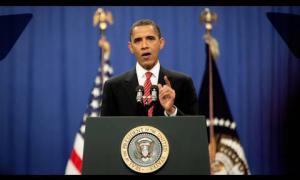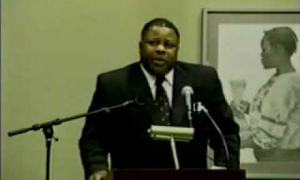He knows of what he speaks
December 10, 2019
A (rave) review of leadership communication guru Tim Pollard's new book, "Mastering the Moment: Perfecting the Skills and Processes of Exceptional Presentation Delivery."
Review of Mastering The Moment: Perfecting The Skills and Processes of Exceptional Presentation Delivery, by Tim Pollard (published 2019 by Conder House Press; 319 pages)
This well-executed book by Tim Pollard offers up plentiful dollops of advice on three broad topics of interest to any speaker (or speechwriter) : “how to prepare for the day” when you make a presentation or speech; “what you do on the day” you speak; and “who you are” on that day, in terms of both how you present yourself and the words you use to position the ideas you aim to share with your audience.
Pollard’s goal in each of his 17 chapters is to put a series of powerful pointers in the hands of his readers. The book will give them as close to a 360-degree view of the complete set of details one needs to keep in mind when preparing and delivering a presentation, as is possible in a single volume.
This book is far more than a “how-to” guide regarding what words to use in a speech, or what makes for the most persuasive phrasing of an argument. Pollard methodically addresses everything from the importance of presentation rehearsal, to the “four horsemen” of a “vicious venue” (such as poor acoustics and bad lighting) and how to foil them, to tips on making the most of those final moments before you go on stage (e.g., walk off those jitters, or mutter them away by reciting your opening line to yourself), to selecting the most effective words and rhetorical devices you can use to get your points across (Chapters 16 and 17).
And if you’re going to use jokes, Pollard writes, please have the humility to pre-test them to be sure they will work, rather than offend (or bomb). Speaking of pre-testing – make sure you arrive early at the venue where you are speaking, to check on any technology you need to support your presentation. And if you find that the hotel projector will not turn on, or the conference room screen is busted beyond repair, you’ll be calm and relaxed, because you followed Pollard’s other suggestion and have physical handouts printed out and ready to go. Your technology-free show can go on!
In an additional point about physical handouts, Pollard emphasizes the higher level of audience engagement you can achieve, in some settings, by providing handouts to listeners in advance of your remarks. He believes so strongly in the power of “teaching to the handout” that he includes a link to a video illustrating how to do it correctly. Beyond using handouts as a way to focus audience attention, they also act as a summary of your presentation that your listeners can share with interested colleagues back at the office, or keep for future reference.
As a further sense of the specific details Pollard explores, he also squeezes in an intriguing discussion (pgs 103-108) of the rapport-building potential you can tap when, rather than using your initial words of self-introduction to the audience to touch on your credentials and background, you instead put the immediate “focus primarily on the audience problem you are going to solve” through your remarks.
This will underline to the listeners, more powerfully than any college degree or length of experience that you might mention, that your presentation is focused on issues that matter to them, and that taking in your words will be “a good use of their time.”
Like any good coach, Pollard is constantly emphasizing how small changes in your overall stance and posture, like the above, can make the cumulative difference between a so-so performance and hitting it out of the park.
This book presents more than just a summation of Pollard’s decades of experience in sales, marketing and communications. What also comes through is Pollard’s dry sense of humor, his skills as a teacher/trainer and his obvious desire to help others strengthen their presentation and speaking abilities. This truly is “an advisor in a book” – a funny, insightful and caring counselor, who wants to help you succeed.
Readers who enjoy Mastering the Moment will likely want to get a further dose of Pollard’s advice by picking up his earlier book, The Compelling Communicator.



